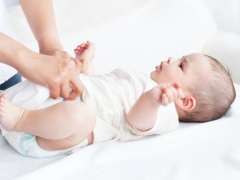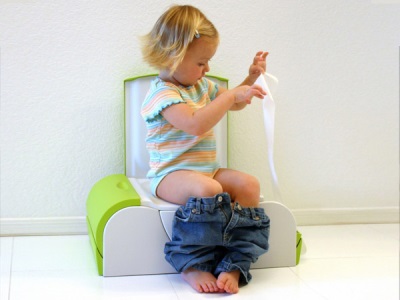As evidenced by the smell of feces in a child
Noticing changes in the various parameters of the child’s stool, parents can react to the disease in time and help the baby cope with the illness more quickly. One of the characteristics of the stool that can be used to notice that something is wrong with the baby is the smell of stool. How is it normal and how can it change with diseases?
Why is it so important?
The smell of fecal masses gives the decay products of food that the child consumed, his appearance is associated with the presence of indole, hydrogen sulfide, phenol, methane and skatole. Knowing how to smell the feces of the baby normally, it will be easier for parents to determine if something unpleasant has happened to the digestive processes in the small tummy.
What should he be normal?
The first feces that babies emit immediately after birth (meconium) does not smell. You can find out about what the baby has poked, only if you look in the diaper. But already from the third day of life, the fecal masses of the infant begin to change, acquiring color and smell depending on the type of feeding.
In children who are fed breast milk, it is normally sour. In formula-fed babies, it is sharper. At the same time, the presence of a putrid odor in the feces of artificial children is considered the norm. In older children, it is not sharp.
Read more about normal baby chair read in another article.
Alarming odors
Sour
Acquisition of a sour smell by feces of a child is characteristic of fermentation dyspepsia. It is manifested by diarrhea, rumbling in the stomach, bloating. He also expressed in liquefied greenish feces, similar to foam, can tell parents and the doctor that the baby has problems with the absorption of milk sugar.
Fetid sharp, strong
Such smells can get fecal masses in case of problems with the pancreas (if its function is impaired due to pancreatitis) and with colon hypersecretion.
He is unpleasant in the baby, who began to feed products of complementary foods containing gluten, can be a symptom of celiac disease. Also, fetid stools can be a manifestation of problems with the flow of bile into the intestines caused by cholecystitis.
Putrid
Its presence may indicate:
- Colitis.
- Putrid dyspepsia.
- Disorders of motor function of the intestine.
- Disturbed digestion of food in the stomach.
- Dysbacteriosis.






